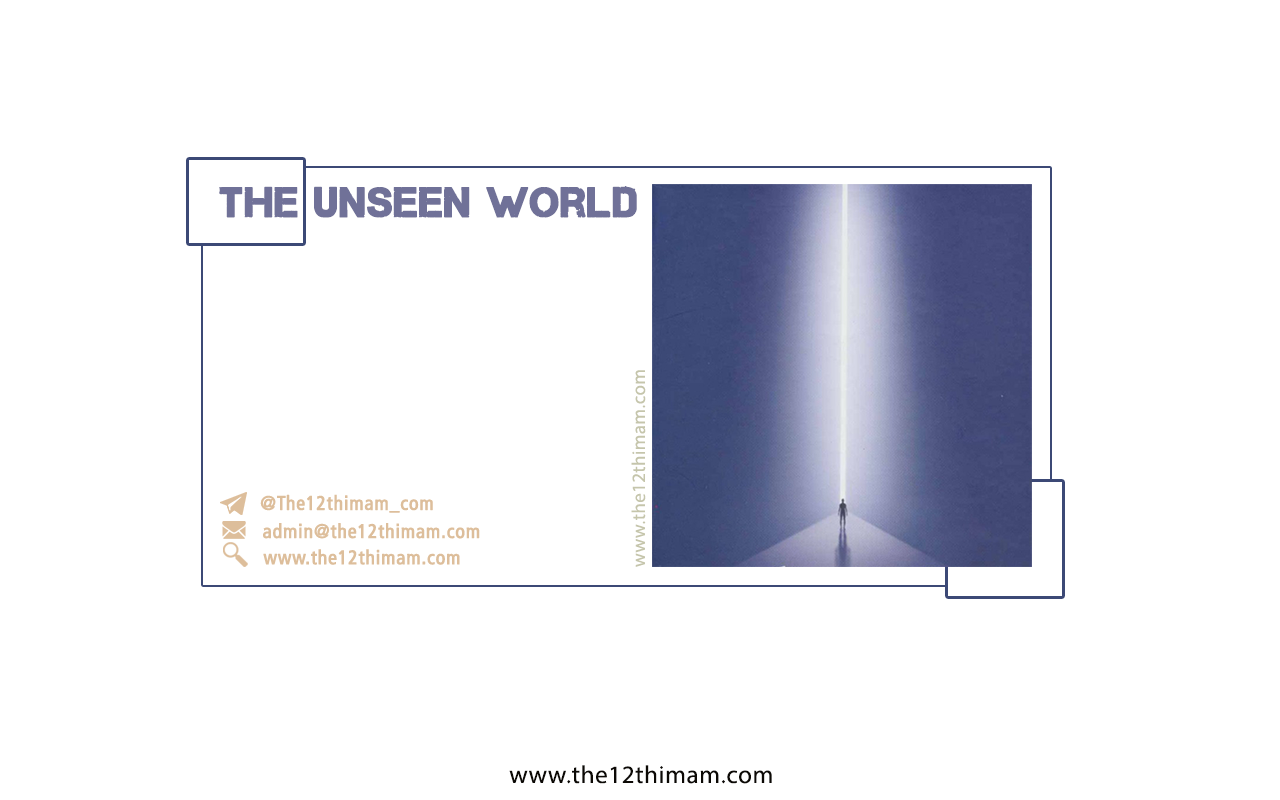The Unseen World, or Ālam al-Ghayb (Arabic: عالم غیب), is part of the world, which cannot be perceived via the five senses. Some Quranic verses restrict knowledge of the Unseen World to God, but there is a Quranic verse according to which prophets can also have such knowledge. Shiite scholars believe that since the succession of the Prophet (s) requires ultra-human knowledge, Imams (Twelve imams) of the Shi’a also possess knowledge of the Hidden. This is evidenced by many hadiths. According to Shiite scholars, prophets and Imams can have knowledge of the Unseen World only through God’s teaching. Some people maintain that ordinary human beings can also have connections to the Unseen World.
The Unseen World vs. the Witnessed World
The word, “ghayb”, literally means something hidden or invisible, which is in contrast to things witnessed or perceived.[1] According to religious doctrines, the world is divided into two major parts: the Witnessed World and the Unseen World. The Witnessed World is the natural world of material beings which are perceivable by the five senses, and the Unseen World is the world of beings that cannot be perceived by the five senses.[2] In his al-Mizan, Allama Tabataba’i takes the revelation and the afterlife to be instances of “ghayb” (the Unseen).[3]
It is maintained by some people that the Unseen World and the Witnessed World do not independently exist, just as the Earth and the sky do. The two worlds have relative existences, that is, some stages of existence might be perceivable for some beings and unseen for others. Thus, those stages count as the Unseen World for the former beings, and the Witnessed World for the latter.[4] The Qur’an partly characterizes believers as having faith in the Unseen World.[5]
Reference:
Makārim Shīrāzī, Tafsīr-i nimūna, vol. 1, p. 70.
Murtaḍawī & Shukrullahī, “Taḥlīl-i Mullā Ṣadrā az imkān-i irtibāṭ-i insān bā ʿālam-i ghayb”, p. 48.
Ṭabāṭabāyī, al-Mīzān, vol. 1, p. 45-46.
Jawādī Āmulī, “ʿĀlam-i ghayb wa shuhūd”, p. 14.
The Holy Qurʾān, 2:3.



